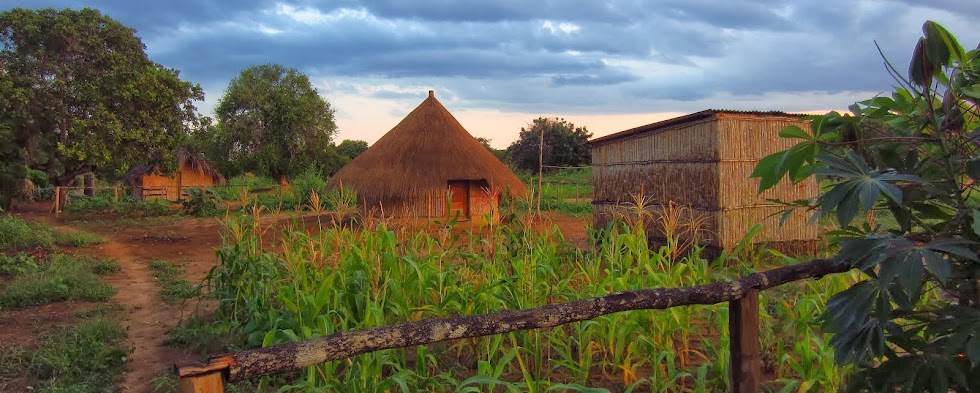[SOURCE: "Mozambique News Reports & Clippings," Ed. Joseph Hanlon]
Nine people have been killed since Friday in a growing
confrontation between Renamo and the government in Muxúnguè, Sofala province,
on the main north-south road (EN1) 100km north of the River Save. This follows
a statement by Renamo Secretary-General Manuel Bissopo to the daily O Pais (2
April 2013) that Renamo is prepared to go to war to prevent registration and
elections this year.
In an attack on a police post
on Muxúnguè Friday 5 April, four police and one Renamo attacker were killed. In
an attack on road traffic on Saturday in Muxúnguè, three people were killed; Renamo
denies involvement in this attack. And on Sunday in Muxúnguè, in an unexplained
attack, the local Anglican pastor was killed.
The confrontation grows out of
Renamo's rejection of electoral laws approved in parliament. During the
extended debate on the electoral laws last year, Renamo consistently demanded
the right to have veto power in the National Elections Commission (CNE). This
was never a possibility, but Renamo remained implacable in its demand.
"The decision of the
majority bench of Frelimo to approve the electoral law and the CNE without consensus
is an invitation to war," declared Renamo spokesman Fernando Mazanga in an
interview with the Portuguese news agency Lusa (2 April 2013). And he confirmed
Renamo is ready for war.
"There will not be
elections. Renamo will not allow elections. Renamo will not accept any Mozambican
moves to prepare the electoral process," Renamo Secretary-General Manuel
Bissopo told Lusa (29 March)
The Renamo head of mobilization
in Beira, Horacio Calavete, earlier said “we are not saying that we are not
going to stand in the elections this year. We are saying that we will not allow
the voter registration, much less the municipal elections, to take place”. (O
Pais, 25 March 2013) He threatened that, if the police try to prevent any
Renamo demonstration, the party would call on its former guerrillas to
intervene. “If the police use force, we shall react in the same way,” Calavete
said. “Our soldiers will not forgive."
Renamo has also refused to name
its two members of the CNE and is refusing to participate in the ad hoc
parliamentary commission to name civil society members of the CNE.
In the early morning of
Wednesday 3 April the riot police (Força de Intervenção Rápida, FIR) responded
by raiding the Renamo party headquarters in Muxúnguè and in Gondola, Manica
province. There were between 200 and 250 men at the Renamo headquarters in Muxúnguè,
who were dispersed and 15 were arrested. A similar number were at the Gondola
party headquarters, where 3 were arrested. Both groups included some former
guerrillas from the 1980-92 war, but Renamo says that the gatherings were just
two of many being held by the party throughout the country to mobilise against
elections.
There is no law against even
large political gatherings on private property. Initial reports were that the
Renamo people were unarmed and no shots were fired. In Gondola the raid was not
resisted. But in Muxúnguè the spokesperson for the Sofala provincial police
command, Mateus Mazive, said that because of the resistance offered by the
Renamo men, the police used tear gas. (AIM 4 Apr 2013)
Police and district
administration spokespeople gave various justifications, including that the two
Renamo offices were "military camps", Manica police spokesperson,
Belmiro Mutudiua. said that the presence of such a large number of men at the
office constituted a danger and was causing panic among the local population,
because of the “clandestine meetings” they were holding. “Renamo did not inform
the local government … The presence of those men constituted a threat, and so
we dispersed them and occupied the office”. (AIM 4 Apr 2013)
At 3.40 am the next morning,
Thursday 4 April, Renamo men attached the Muxúnguè police station, killing four
members of the riot police (FIR) and injuring at least nine; one of the Renamo
attackers was also killed. (CanalMoz 5 Apr 2013, http://canalmoz.co.mz/hoje/24828-renamo-deixou-ummorto-
no-ataque-ao-quartel-da-fir.html)
Then at 16.50 on Saturday
afternoon there was an attack on the main EN1 road about 30km south of
Muxúnguè. An armed gang attempted to stop a bus of the South African company
Intercape which was travelling from Maputo to Beira. The driver did not stop
and the armed men shot at the bus, injuring two passengers. Next they shot at a
southbound tank lorry forcing it to stop. After it stopped, they shot and
killed three passengers. Next the armed men tried to stop a southbound bus of
the Mozambican company Etrago which drove through the ambush without incident.
This is an area of the EN1 in which there were repeated attacks by
Renamo on road traffic during the 1980-92 war, and government officials and
media again blame Renamo for these attacks. But Renamo head of security Ossufo
Momad denied any Renamo involvement in a statement Sunday. But according to
Noticas (8 Apr 2013) he also warmed people not to drive along that stretch of road,
and also warned of possible attacks in Maputo.
Finally, on Sunday in Muxúnguè in an unexplained attack, the local
Anglican pastor was killed. (Noticias 8 Apr 2013)
Catholic
bishops in a pastoral letter Sunday said that the "hypocrisy" of both
Frelimo and Renamo was behind the conflict. It cited the "intense
antagonism and lack of tolerance and dialogue" on both sides. It went on
to blame the lack of internal democracy in the two parties. "Aren't there
many members of both parties who are afraid to express their own opinion if it differs
from that of party leaders?"
asked the bishops. (O Pais 8 Apr 2013)



No comments:
Post a Comment